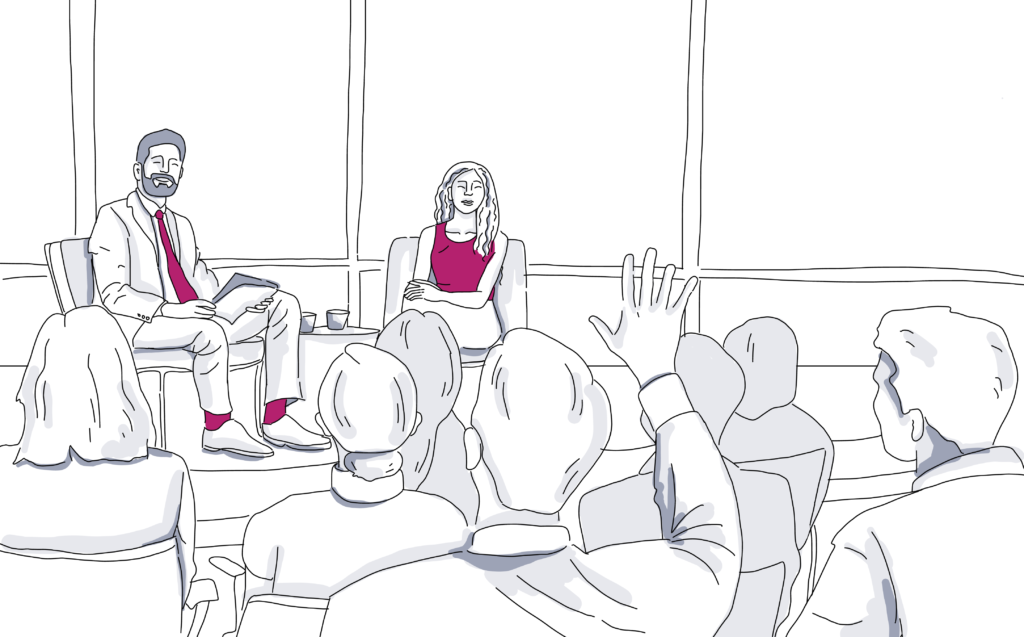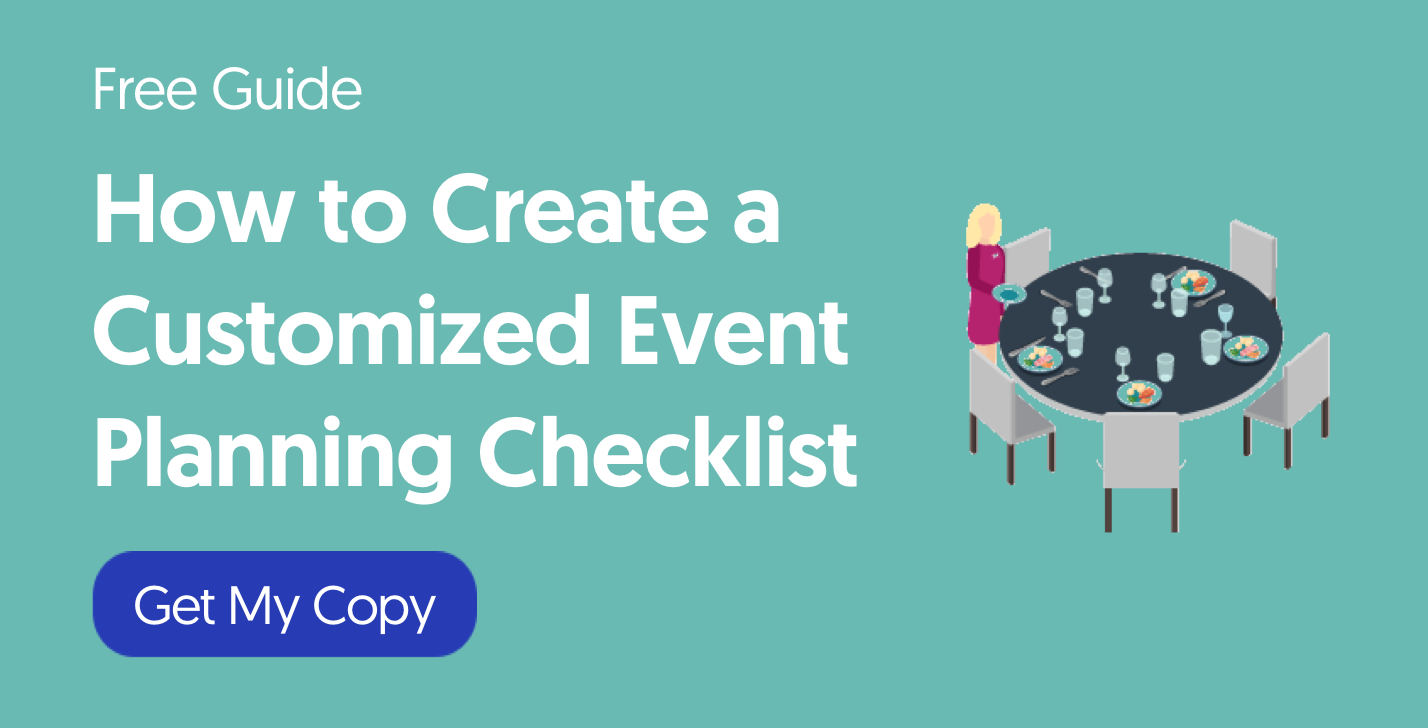
Motivation Monday: 20 Event Planning Interview Questions & Winning Answers
You’re guaranteed to run into at least some of the event coordinator interview questions on this list. The Bureau of Labor Statistics notes that preparation is absolutely required for anyone who wants to truly ace the job interview – and these event planning interview questions will be a key part of your process.
Here’s the thing about event coordinator interview questions¦
Events administrator interview questions revolve around three main categories: your personality, your job related experience, and your overall event planning strategies or philosophies.
And don’t worry if you’re just starting out – most interviewers will take that into consideration. So if you come across a question about any situation you have yet to personally experience, just be honest and explain what you would do, if given the opportunity.

Taking the scary out of the event planning interview process
It’s pretty much the same as any other job interview process. Depending on your niche (corporate versus private event planning) or industry (technology versus weddings, etc.), you might encounter some variation of the number of interviews required or any additional, company-specific questions asked. But for the most part, you can expect any standard event planning job interview process to begin with an application, include one or more interviews (using the questions below), and – if you’re successful – end with an offer.
[Tweet “Event administrator interviews are a piece of cake once you’ve rehearsed your responses to some standard questions.”]
20 Most Common Event Planner Questions and Answers
Events administrator interview questions are a piece of cake once you’ve rehearsed your responses. Here are some standard questions along with suggested answers and advice to keep in your back pocket when preparing for the interview:
1. What personality traits, skills, and education do you think all event planners must have?
Answer: The most successful event planners tend to be highly flexible, organized, and easy to get along with. They also have great time, money, and people management skills. And although formal education isn’t necessarily required it’s always good to have a college degree and/or a certification or two under your belt when starting out.
2. Why do you want to plan events for our company?
Answer: Be thoughtful in your answer to this question. Besides a love of events, you’ll probably want to go over the company’s mission or value statement and find the points you resonate with the most.
3. What event software and tools do you like using? And why do you use them?
Answer: If you don’t already have some programs you actively work with, make sure you review a free planning event software or tools ahead of time and mention that you’d like to use them for upcoming projects.
4. How do you keep up with industry trends and news?
Answer: Event planning blogs (like this one) are a great resource for keeping up to date with it all. If you don’t already have some ready to go for this question, start by bookmarking the Social Tables blog for future reference.
5. How do you manage event promotion, including social media outreach and email campaigns?
Answer: Just in case it’s been awhile, here’s a great guide to promoting events on social media you can use to brush up.
6. What makes an event successful and how do you measure that success?
Answer: The interviewer may or may not be fishing for a specific answer here. But in general, planners can use almost any event KPI that directly relates to the stated event goals.
7. What was your most successful event planning experience?
Answer: When explaining the event, make sure you showcase which key event planning skill you used to pull it off.
8. What is your gameplan for managing event budgets?
Answer: The most common reasons why projects go over budget have to do with the inexperience of the event planner (poor communication, unrealistic targeting, lack of foresight are the main issues), so it makes sense why this would come up. Make sure they know you’re aware of this and plan to prevent any foreseeable issues through additional research and education.
9. How would you handle an event going over budget?
Answer: 85% of projects go above budget but there are plenty of things you can do if your event does go over, including negotiating with vendors and finding cheaper alternatives for essentials that don’t directly add to attendee experience (think scansions and signage).
10. Do you have any experience negotiating budget with third parties (vendors, sponsors, etc.)?
Answer: If you don’t, that’s perfectly okay. List some common tips for how to negotiate with venues and vendors that’d you’d like to try out in the future.
11. What do you do when you feel stressed out during the event planning process?
Answer: Event planning has been named the 5th most stressful job in the world. A great attitude, commitment to work/life balance, and fine-tuned communication skills are part of any professional planners stress-busting inner toolkit.
12. What would you do about something you had to do but did not have all the answers?
Answer: Now’s the time to break out an example from your personal life. Choose one thing you’d like the interviewer to take away from your story. It can be a skill you possess, something that makes you uniquely qualified for the job, or something not listed on your resume that will really stand out from the competition. Then choose an experience you know portrays you in that light so you can show (not tell) them all about it.
13. You’ve just been given a new event to plan. How do you prepare for the kickoff meeting?
Answer: Since you’ll most likely be a leader figure in the kickoff meeting, you’ll want to assemble the agenda and prepare for introductions. You’ll also outline the event’s purpose, goals, and timeline along with individual or department responsibilities/expectations. And, to finish up, you will give instructions on how communication will flow and what check-ins (if any) will take place when.
14. Have you ever planned more than one event at a time and were they all a success? Why or why not?
Answer: We all know that not every event you plan is going to be a success – and that’s perfectly okay! So this question is less about shortcomings and more about your ability to assess event expectations versus results. The more informed and professional your answer is, the better. So pick an event (that either succeeded or failed) that you can discuss in great detail and include info like the initial goals versus your final event ROI.
15. How do you prioritize competing project deadlines?
Answer: This question suggests that the job you’re interviewing for might include planning multiple projects at once. The key is to know how to prioritize when everything is #1, which can often be determined by your event goals.
16. What steps do you take to handle last minute or unexpected setbacks before and during an event?
Answer: Managing last minute event planning madness is a skill all its own but it starts during the initial planning phase by including wiggle room in both the timeline and budget for things that come up.
17. How do you stay motivated when things go wrong?
Answer: Again, this is another great opportunity to showcase a specific characteristic you possess through a personal story, unrelated to work. Don’t be afraid to explain where you pull your strength from or who inspires you – these details will make your interview far more memorable.
18. Have you ever dealt with a difficult client? In what ways were they difficult and how did you handle the situation?
Answer: Dealing with difficult clients can actually make you a better event planner. By mirroring their behavior and improving your communication skills you can overcome virtually anyone’s bad attitude.
19. What is the best way to choose an event venue?
Answer: This handy 7 point checklist for choosing your event venue is great if you don’t already have one. Otherwise you can always mention how budget and event goals factor into the process for you.
20. Are there any event types you find particularly interesting or exciting to plan?
Answer: If you’ve done your homework, you should already know how many events this company plans every year as well as which event type they most frequently use. For example, if they host a lot of seminars and you love the thought of taking over their monthly series, make sure you mention that in your answer. Ultimately this question is about your personality (what makes you tick when it comes to events) and fit (it’s great if an event planner prefers organizing conventions but you wouldn’t necessarily want them to plan your wedding).

Now you’re ready to ace your event administrator interview!
Whether you want to become a professional event planner or you’re already established and looking for a new company to work with, having answers to these questions prepared ahead of time will make you that much more polished and confident. You can also look over client meeting tips or, if you decide to go it alone after all, review these essential steps to starting an event management business.

Searching for more answers about event planner interviews?
Be prepared to give relevant examples and use your experience to back up answers during an interview. Spend some time thinking through the learnings and value you bring to the table as a result of your experience before any interview.
When interviewing for an event planner role, the questions you ask should highlight the strengths of the type of employee you are searching for. Ask specific questions about the important components of the job, and give them an opportunity to highlight what makes them special.

